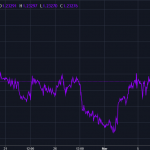On January 16, 2013, the Bundesbank – one of the biggest gold holder in the world, with 3,378 tonnes – shocked the world: out of the blue, the German central bank announced that by December 31, 2020, it intends to store half of Germany’s gold reserves in its own vaults in Frankfurt, up from only 31% at the time. The plan would mean repatriating a total of 674 tonnes of gold, 300 from the New York Fed’s gold vault, and another 374 from the Bank of France. The transfer, the Bundesbank explained, was meant to “build trust and confidence domestically, and the ability to exchange gold for foreign currencies at gold trading centers abroad within a short space of time.”
The “politically correct” motives for the transfer, as well as the logistics and the mechanics behind it were explained in a March 2015 video released by the Bundesbank…
Video length: 00:08:09
… the real reasons, however, is that following several reports on this website which cast doubts on Germany’s gold holdings, in late 2012 the German Court of Auditors demanded that the Bundesbank undertake an audit of its gold reserves. Specifically, the court wanted to ensure that the nearly 3400 tons of gold, of which more than 2,000 tonnes held offshore, is in fact in existence – ‘because stocks have never been checked for authenticity and weight‘. The move to repatriate was only accelerate following rumors that much of the offshore-held gold might have been “rehypothecated”, and not be there anymore, that it might have been melted down, leased, or sold.
Ironically, at the time, Bundesbank Board member Carl-Ludwig Thiele told the Handelsblatt that these moves were a “trust-building” measure, and he tried vigorously to put the rumors about the missing gold to rest. Of course, repatriating your gold from foreign central banks is precisely the opposite of a “demonstration of confidence.”
Even more ironic is that speaking to Forbes, a Bundesbank spokesman said in Jan 2013 that “we have no intention to sell gold,” adding that “[the relocation] is in case of a currency crisis.” A mildly paradoxical argument since the officially stated reason for the repatriation the gold was to “build trust and confidence domestically, and to have the ability to sell gold quickly If needed.”











Leave A Comment